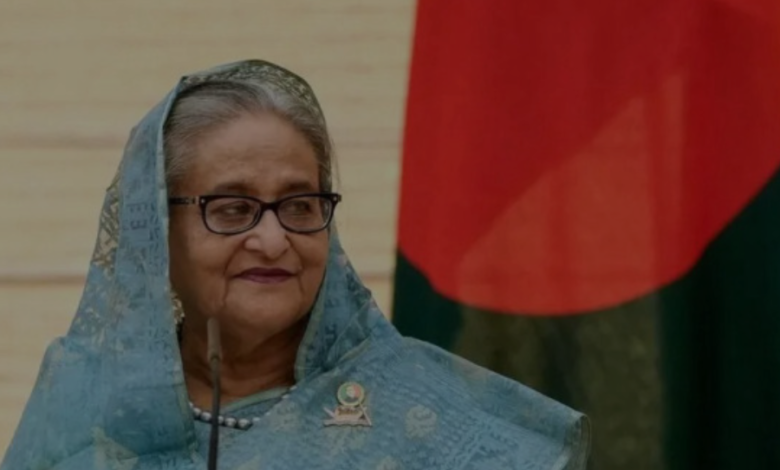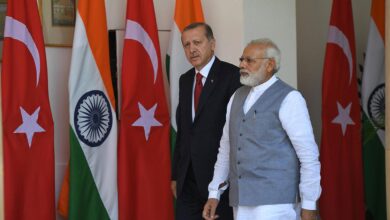Bangladesh’s ex-Premier Hasina claims US behind her ouster

Bangladesh’s former Prime Minister, Sheikh Hasina, has said that she was toppled from power by George Bush because she was reluctant to allow American control over the strategic island of Saint Martin at the entrance of the Bay of Bengal. A report in The Economic Times on Sunday has it that Hasina, 76, relayed this message through intermediaries that ‘she could have remained in power if she had sold the sovereignty of Saint Martin Island to the U.S. ’
Saint Martin Island, known locally as Narikel Zinzira or Coconut Island, is an island that measures a minimum of three kilometres squared in the Bay of Bengal. It is located in the northeastern corner of the Bay of Bengal, some nine kilometres south of Cox’s Bazar Teknaf peninsula, and thus, it is the southern tip of Bangladesh.
Hasina was portrayed to have an uncompromising stand on the island’s sovereignty, especially when the report highlighted the importance of the Island, noting the geopolitical power it was to give in the region. In May, it may be recalled before Hasina demitted office. She had accused someone of planning to form a ‘Christian state like East Timor’ out of Bangladesh and Myanmar! But she did not say which particular country is involved in this alleged plan of violence.
During the published interview, Daily Star cited Hasina as having said she was offered an easy re-election in the January 7 polls if she agreed to allow a foreign power to build an airbase in Bangladesh territory. But she declined such advances more so when insisting on Bangladesh’s independence.
After she resigned on August 5, Hasina made an emotional statement about the political crisis that has plagued Bangladesh, starting with the protests against the much-debated quota for government jobs. Her son Sajeeb Wazed, who is living in the U. S., categorically rejected on the social media platform X (formally Twitter) an alleged audio statement resigning by Hasina. Wazed dismissed it as ‘baseless and invented’ and said that after consulting his mother, she denied having made such comments while in Dhaka or after moving to any other city.
Hasina left Bangladesh on August 5 and is presently in India, as I learned from Indian authorities. After her departure, there has been increased violence, with *Prothom Alo* chronicle showing at least 580 people have died since July 16 in protests against Hasina’s government Shakil. Of these, 326 deaths were reported between August 4 and 6.
Bangladesh’s army chief, General Waker-uz-Zaman, announced her resignation after Hasina’s departure and the formation of a transitional government. Only a day later, President Mohammed Shahabuddin dissolved the parliament, which was elected in January of this year when Hasina won the fourth term as prime minister.
On August 8, the government inaugurated a new government headed by the 2006 Nobel Peace Prize winner Muhammad Yunus, who will serve as Chief Adviser and head a 17-member caretaker council. The main opposition party, the Bangladesh Nationalist Party (BNP), has since called for a national election within three months to return power to the people’s representatives.




